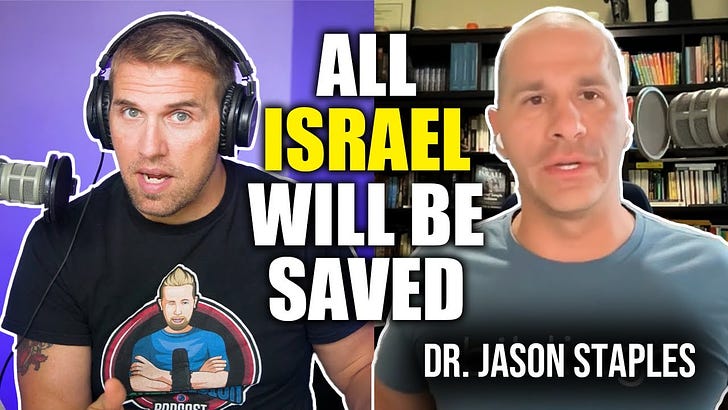I’ve had to put more extended Substack posts on hold the last couple weeks as I’ve been preparing my presentation for tomorrow’s NINT Conference (last minute registrations are still possible!), but there have still been a few interviews that may well be worth a look. Once I’ve gotten through this weekend, I’ve got a few posts in the pipeline, including a discussion of that Christianity Today article about public schools as a “training ground for faith.”
As for the recent interviews, one is with the MythVision YouTube channel; Derek Lambert asked some really probing questions in this one, which meant we got pretty far out into the weeds toward the end.
A second is with Chris Plance, who is doing some research on the Gospel of Matthew, which led to some really fun discussions about some of the potential implications of my work for Matthew and other New Testament and early Christian texts.
Finally, there’s this one with James Tabor, emeritus professor at UNC-Charlotte (for those outside the USA: this is a different institution from UNC-Chapel Hill, where I got my own PhD). Tabor asked me about how I wound up choosing my dissertation topic under my advisor, Bart Ehrman, a story I don’t think I’ve previously told in this sort of forum.
The basic gist: Ehrman recognized my proposal as radically different from previous Pauline scholarship and wisely suggested I first work with some of the Paul specialists at Duke and get their feedback before plowing ahead. But it was ultimately the late Robert Jewett, who loved my 2008 SBL/AAR presentation on the topic, whose reaction persuaded Bart—who is more cautious and conservative by nature as a scholar, preferring to stick closer to the mainstream rather than chasing what is trendy—that this was a project worth doing.
Thankfully, Bart is unusually flexible as an advisor and gives his students lots of freedom to work outside his specific areas of expertise rather than require that they adhere to what he finds most interesting, so he then gladly greenlit the project, and his guidance and incisive questions and writing advice made the project so much better than it ever would’ve been without him.



